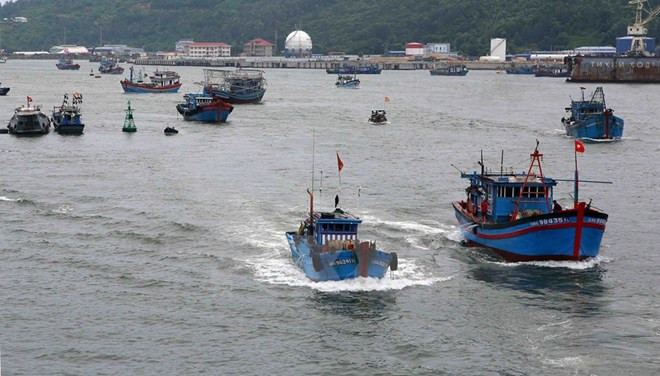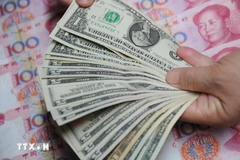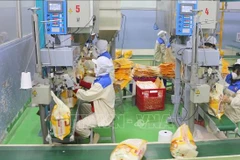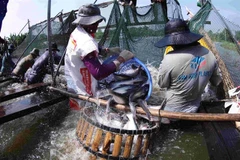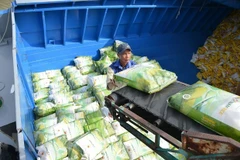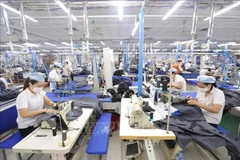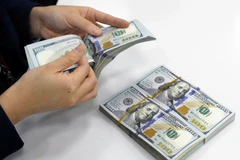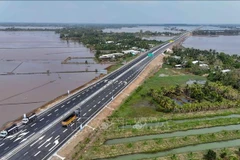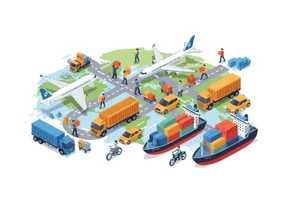Hanoi (VNA) – The “yellow card”warning must be taken as motivation to transform the fishery sector into aresponsible and sustainable industry, Minister of Agriculture and RuralDevelopment Nguyen Xuan Cuong has said.
The European Commission (EC)’s issuance of a“yellow card” warning on Vietnamese seafood exports is also an opportunity forthe country to change global perspectives about local fisheries, while also sustainablydeveloping the sector and managing marine resources, the minister said.
He moved on to affirm how Vietnam is determinedto fight illegal, unreported, and unregulated (IUU) fishing to have the warninglifted.
According to the minister, the Ministry ofAgriculture and Rural Development (MARD) has engaged in crafting the revisedLaw on Fisheries which puts the EC’s recommendations into concrete legislation.New sub-law documents related to fisheries have also been formulated with the supportof experts from the EC to increase their feasibility.
In addition, Cuong has requested that coastalcities and provinces increase patrols, as well as tighten the inspection andmonitoring of their waters to prevent any potential violations.
He also urged them to better disseminateregulations against IUU fishing at fishing harbours and to get tough on vesselsthat do not keep their satellite-positioning systems active all day and night.
Acting General Director of the Directorate ofFisheries Nguyen Ngoc Oai said the office has been striving to fast-track theinstallation of the satellite-positioning device Movimar for all offshorefishing vessels with lengths of 24m or more.
Vietnam is also committed to completing theinstallation by April 2019, he noted.
The MARD has signed an agreement with theMinistry of National Defence on how they will coordinate to control Vietnameseoffshore fishing boats. It has also actively cooperated with relevantinternational organisations to prevent IUU fishing.
Thanks to such drastic efforts, Vietnam is aboutto end illegal fishing in foreign waters off the coast of other Asia-Pacificcountries, while seeing remarkable progress in the inspection and control ofoffshore fishing ships, Oai added.
The Mekong Delta province of Kien Giang, wheremeasures against IUU fishing are being piloted, has nine of its 15 districts alongthe coast. It has established a number of special teams to inspect fishingvessels, handle violations, and withdraw fishing permits if necessary.
Deputy Chairman of the provincial People’sCommittee Mai Anh Nhin proposed that the MARD soon release technical standardsfor the installation of the positioning devices on fishing boats, while askingfor the Ministry of Public Security’s support in probing brokers involved insending fishing vessels to encroach on foreign waters.
The EU is Vietnam’s second largest seafood importer, purchasing 350-400 millionUSD worth of local seafood annually, accounting for about 16-17 percent of thetotal seafood export revenue.
It imposed its “yellow card” ruling on Vietnamin October last year, after the country failed to demonstrate sufficientprogress in the fight against IUU fishing worldwide.
Since then, the country’s seafood exports havefaced various challenges. According to the Vietnam Association of SeafoodExporters and Producers (VASEP), only those marine fishery products validatedas passing legal requirements can access the EU market, with difficulties inverifying product origins causing a shortage of input materials for manydomestic seafood producers.
Since the beginning of 2018, revenue from seafood exports to the EU market sank20-30 percent year-on-year. Almost all Vietnamese seafood consignments havebeen subject to lengthy customs checks in European countries, meaning greatercosts for exporters.
To address the problem of IUU fishing activities, the EC has been evaluatingexporting countries since 2012. Those countries that fail to meet EC standardsare issued a "yellow card" warning, followed by a "greencard" if issues are resolved, or a "red card" if they are not. Ared card can lead to a trade ban on fishery products.
According to EC requirements, the Vietnamese seafood sector had to implementnine recommendations, including revisions of the legal framework to ensurecompliance with international and regional rules, applicable to theconservation and management of fisheries resources; ensuring the effectiveimplementation and enforcement of the country’s revised laws; and strengtheningthe effective implementation of international rules and management measures.
The EC also wanted Vietnam to issue sanctions and increase the level ofsanctions against IUU fishing, which should be written in the revised Law onFisheries, and give concrete evidence proving Vietnam’s efforts in the fightagainst IUU fishing. –VNA
